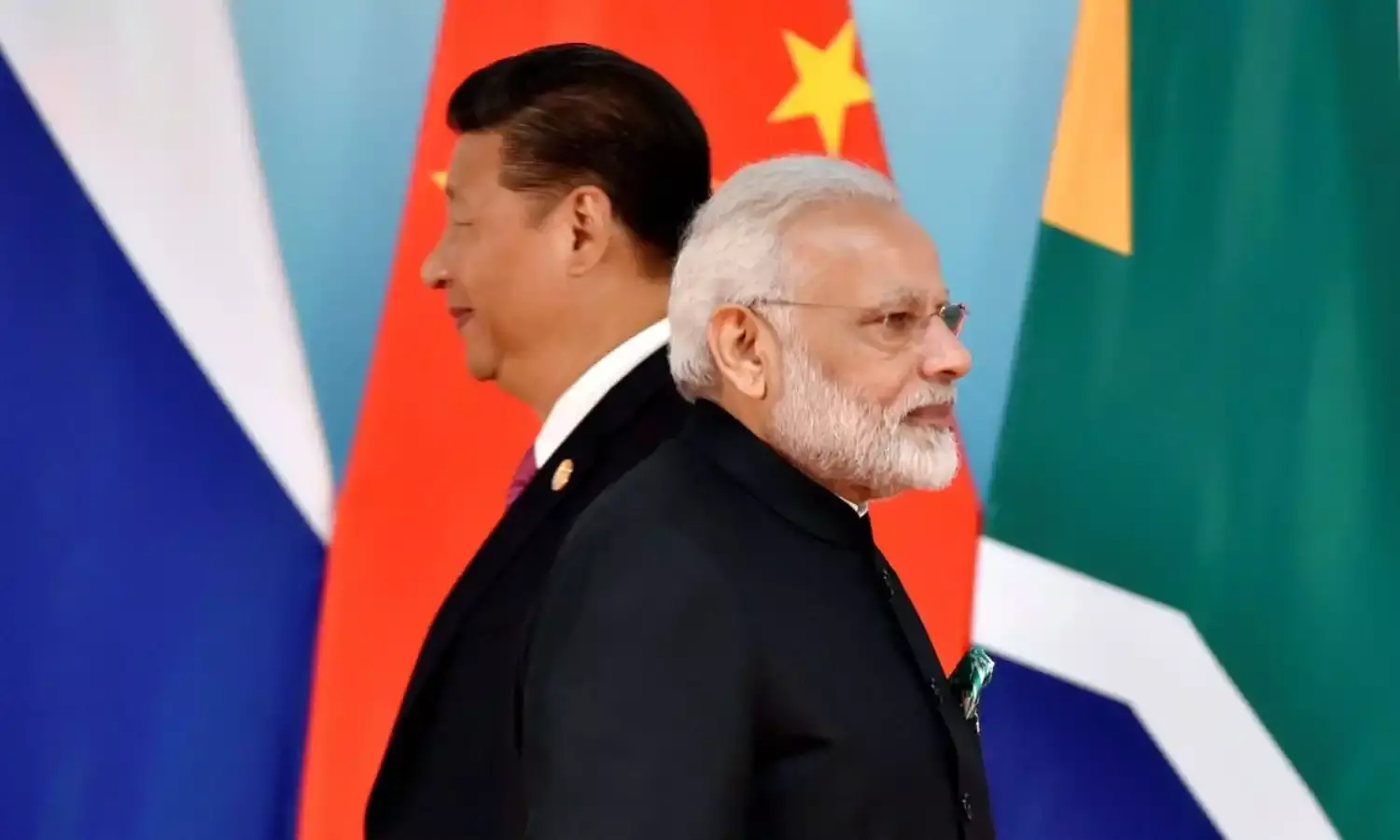Congress In Attack Mode: Doklam, PM Modi's Achilles Heel
Congress In Attack Mode: Doklam, PM Modi's Achilles Heel

NEW DELHI: Congress president Rahul Gandhi seems to have zeroed in on two issues of defence and foreign policy import that make the Modi government defensive, and almost speechless.
After Rafale it is the turn of Doklam with the government maintaining that its show of “maturity” resolved last year’s crisis between New Delhi and Beijing and Rahul Gandhi tweeting after Minister of External Affairs Sushma Swaraj’s “all is well” statement to say, “"Amazing how a lady like Sushma ji has buckled and prostrated herself in front of Chinese power. Absolute subservience to the leader means our brave jawan has been betrayed on the border.”
His comments follow a claim by US Congresswoman Ann Wagner during a Congressional hearing of the House Foreign Affairs Sub=Committee for Asia and Pacific where she asked categorically, ““Although both countries backed down, China has quietly resumed its activities in Doklam and neither Bhutan nor India has sought to dissuade it. China’s activities in the Himalayas remind me of its south China Sea policies. How should our failure to respond to the militarisation of the South China Sea inform the international response to these Himalayan border disputes?”
That the Chinese who never really left Doklam despite the government’s muscle flexing appear to have stepped up construction activities yet again. And this time without a murmur from New Delhi with Prime Minister Narendra Modi not even raising Doklam during recent meetings with China’s Xi Jinping, includign the last one on the sidelines of the BRICS summit at Johannesberg.
In fact Swaraj insisted in Parliament that "There is no change in the status quo (on the ground). There is not an iota of change. The face off at sight has been resolved on August 28, 2017.” And that there has not been an “iota of land” lost in the process. Not so if the Americans are to be believed with Wagner very clear in her question to the US State Department officials during the hearing, “"Although both countries backed down, China has quietly resumed its activities in Doklam and neither Bhutan nor India has sought to dissuade it. China's activities in the Himalayas remind me of its South China Sea policies. How should our failure to respond to the militarisation of the South China Sea inform the international response to these Himalayan border disputes?"
The 73 day stand off that had the troops of both countries in eyeball to eyeball confrontation suddenly disappeared in what the government now insists was a mature response. However, as foreign policy and defence experts pointed out at the time the so called disengagement appeared to have worked in China’s favour that had stopped construction for a while but had not withdrawn its troops or for that matter its building machinery from the area. PM Modi, however, has not raised the issue in his meetings with Xi with the government claiming success, that the US and now the Congress party here, insists it never had insofar as the Doklam controversy was concerned.
Minister of State for External Affairs Ministry VK Singh preceded Swaraj in informing the Rajya Sabha in a written response to a question that there were no new developments at Doklam and status quo prevailed. In a statement later, Ministry of External Affairs spokesman Raveesh Kumar repeated the same comments. This was followed by the above statement by Minister Sushma Swaraj in the Lok Sabha.
Indian foreign policy experts and diplomats have questioned the governments Doklam claims last year. Former ambassador MK Bhadrakumar wrote, “Indian posturing post-Doklam has a tragi-comic feel” last year after the Chinese Foreign Ministry had on record stated that because of diplomacy and “effective countermeasures” the Indian side had withdrawn all its personnel and equipment. And further maintained that its troops “continue with their patrolling and stationing” in the Doklam area. And tgat China had been building roads in the area and in the future would “make proper building plans in light of the actual situation.”
Signficantly, New Delhi did not rebut these claims and instead used the pliant media to project muscle power from the Indian side who as Bhadrakumar put it “stared the Chinese down.” And as he wrote, “On balance, it appears that India won’t admit its unilateral withdrawal from Doklam, while the Chinese side is disinterested in triumphalism.”
Experts insisted at the time that India withdrew unilaterally as it was unable to withstand China;s psychological push through hard hitting statements and warnings almost every day, followed by the movement of advanced HQ-16 and HQ-17 missiles into Tibet along with other heavy weapons of course. As Bhadrakumar noted more clearly than others, Beijing made it apparent that it was preparing for a heavy military offensive if so required.
Doklam appears to be the ‘give’ to keep China in good humour, with the Congress and the Opposition determined to rub the BJP government’s nose in a controversy of its own making.



